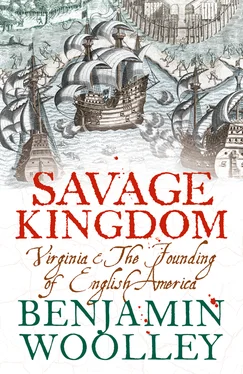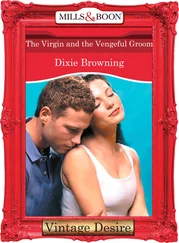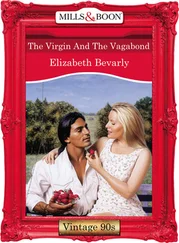Like the council, Brewster began with an optimistic assessment of the settlement’s prospects, and added an equally desperate plea for a supply mission to ensure their fulfilment:
Now is the King’s Majesty offered the most stately, rich kingdom in the world, never possess’d by any Christian prince. Be you one means among many to further our seconding to conquer this land as well as you were a means to further the discovery of it.
This was just the garnish for what followed: a report on the conduct of the council, describing the faction fighting that had nearly destroyed it. Unfortunately, although the beginning of the letter is still to be found among Cecil’s papers, the confidential part was torn off, and has never been recovered.
On Sunday 22 June, Hunt led the company in Holy Communion, the first to be held since their arrival. In the evening, Newport invited some of the gentlemen aboard his ship for a last supper. Final preparations were made on the Susan Constant and Discovery , while the Godspeed , which was to remain in Virginia, was decommissioned, her sails removed to the fort to prevent her being taken by renegades or attackers.
Newport set sail the following morning, promising to return within twenty weeks. 33 The settlers lined the shore and watched the fleet cast off and make its way down the majestic James. The ships disappeared within minutes behind the thick canopy of trees covering the eastern end of the island.
Anxiety, if not dread, gripped those left behind, as they walked back into their makeshift accommodation. Living conditions were still rough. Their ‘houses’ were for the most part fragile tents, devoid of home comforts. The weather, Indians and supplies were erratic, preventing all attempts to find a settled or familiar routine. Worse yet, the councillors in whose hands their fate now rested seemed to be infected with the scheming and plots, petty rules and brutal punishments they had hoped to leave behind in England.
‘You shall live freely there [in Virginia], without sergeants, or courtiers, or lawyers, or intelligencers,’ a character in Eastward Hoe had promised. The hollow laughter aroused by those scurrilous words at the Blackfriars Theatre each night echoed all the way across the Atlantic.
SEVEN The Spanish Ambassador
SOMETIME IN JULY, 1607, Robert Cecil was strolling under a warm summer sun in the gardens of Whitehall Palace, the royal residence in Westminster. One Lanier, either John, son of a Huguenot refugee and a royal musician, or his son Nicholas, also a musician, approached him, accompanied by a soldier called Captain Hazell. A discussion took place between this Hazell and Cecil about which nothing is known, except that it concerned Hazell embarking on a secret mission to Spain accompanied by someone ‘best experienced’ in the coasts of Virginia.
Hazell apparently recommended for the job one George Weymouth, ‘a special favourite of Sir Walter Cope’s’, and an experienced mariner who as recently as 1605 had led a reconnaissance mission to Cape Cod. Weymouth was duly hired, and a few days later, he and Hazell slipped out of London, and made their way towards Deal in Kent, where they were to pick up a ship bound for Spain. 1
Meanwhile, on 29 July, the Susan Constant slipped into Plymouth harbour. Newport scribbled a letter to Cecil, announcing his arrival, and the discovery of ‘a river navigable for great ships one hundred and fifty miles’. ‘The country is excellent and very rich in gold and copper,’ he reported, adding that ‘of the gold we have brought a Say’ or sample, which he hoped to present to the King and the Privy Council. ‘I will not deliver the expectance and assurance we have of great wealth, but will leave it to Your Lordship’s censure when you see the probabilities.’
The remainder of the letter contained excuses for not leaving his ship and making the journey overland to London. His ‘inability of the body’ detained him, he wrote, possibly referring to the difficulty of making a long journey on horseback with a missing arm. So he would sail his ship round to London as soon as ‘wind and weather be favourable’. 2
His desire to spend some time at Plymouth might not have been motivated by medical needs alone. He had probably decided to allow the crew time to sell some of the sassafras they had brought from Virginia. They would have found on the quayside at Plymouth any number of merchants happy to buy the precious commodity without declaring it to the port authorities. The lack of any subsequent references to it in the official correspondence would suggest this is what happened, depriving the settlers and investors of some of the cash needed to pay for the promised supply mission.
The Susan Constant took two weeks to make the final leg of the journey to London. Sir Walter Cope was waiting impatiently for her, eager to get his hands on the ‘sperm’, as he called the ore sample, which he hoped would fertilize England’s new American possession.
In a letter of 12 August, reporting the ship’s arrival to Cecil, Cope’s excitement was uncontainable: ‘If we may believe either in words or Letters, we are fallen upon a land that promises more than the Land of promise: instead of milk we find pearl, & gold instead of honey.’ He acknowledged that Cecil might treat such claims with ‘slow belief’. There was, after all, ‘but a barrel full of the earth’ to show for this first mission. But he hoped that tests to be conducted that very day would reveal ‘a kingdom full of the ore’. 3
‘I could wish your Lordship at the trial,’ Cope continued. Cecil’s ‘word and presence may comfort the poor citizen of London’. Many had evidently refused requests to continue backing the venture, despite an attempt the previous March to enlarge the Royal Council and thereby increase the investors’ representation. 4 In Cope’s opinion, they might be persuaded to ‘adventure much more in this most hopeful discovery’, but would need ‘a little help’ from Cecil, probably meaning further reform to the council and the company’s unusual structure. There was no shortage of money, he noted. Sir Thomas Smythe (who, Cope added in a marginal note, would benefit from ‘a word of thanks’ from Cecil ‘for his care and diligence’), had recently persuaded ‘fifty citizens’ to offer £500 apiece for a share in an East India Company expedition to the Far East. 5
By the following day, Cope’s mood was very different. Four trials of Newport’s soil samples, conducted in various laboratories around the city, had produced not so much as a grain of gold. ‘In the end, all turned to vapour.’ There had been suspicions the previous day that John Martin, who had tested the soil in Jamestown, had not done so properly. Now, Martin was accused of having ‘cousined’ (fooled) not only Newport, but the King, the State and his own father – the latter, Cope suggested, in a desperate attempt to persuade the mean old plutocrat to send some private supplies, ‘which otherwise he doubted never to procure’. 6 Newport at this stage appears to have given up hope, and announced that he did not intend to return to Virginia.
By mid-August, things were looking a little more hopeful. On 17 August, Sir Thomas Smythe, braiding every strand of influence in the hope of keeping the project together, informed Cecil that Newport was back on board. The captain now claimed he must have brought back the wrong sample. He pledged to lead the supply mission back across the Atlantic, ‘never to see your Lordship before he bring that with him which he confidently believed he had brought before’. 7
Others remained sceptical. A week later, the diplomat Dudley Carleton, one of Cecil’s protégés, sent his regular correspondent John Chamberlain a downbeat assessment of the settlement’s prospects. ‘They write much commendations of the air and the soil and the commodities of it, but silver and gold have they none,’ he wrote, ‘and they cannot yet be at peace with the inhabitants of the country.’
Читать дальше












